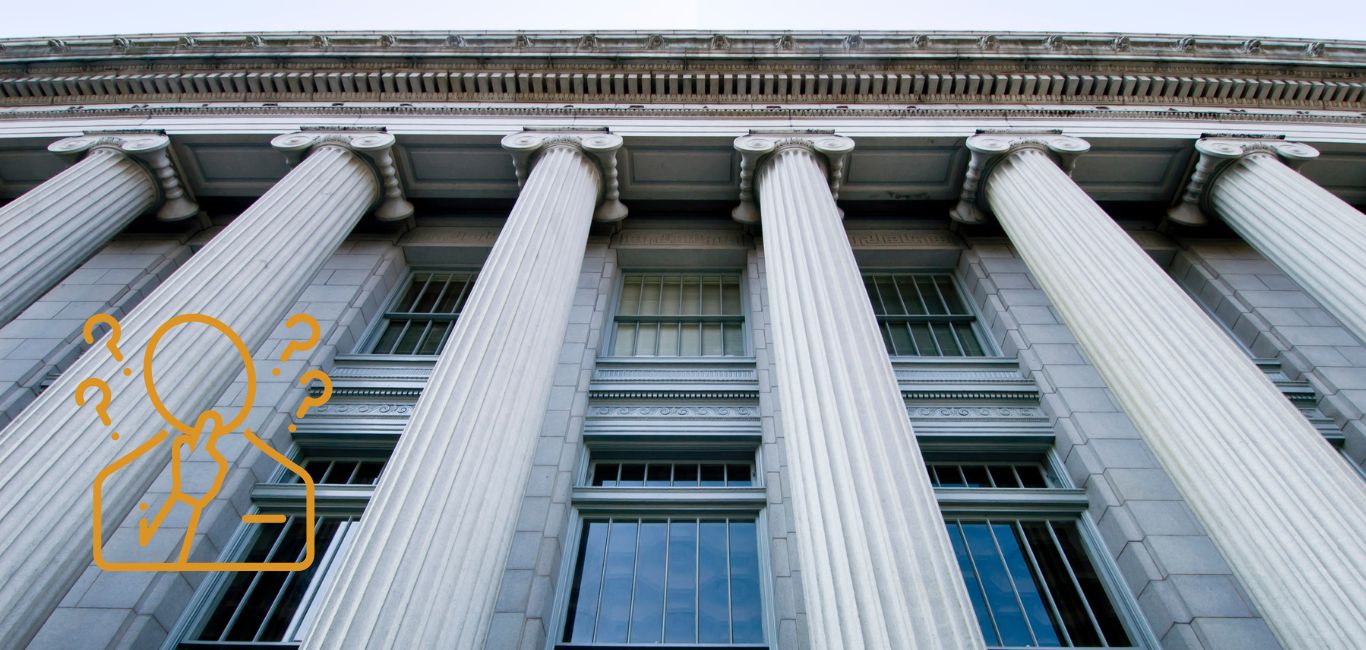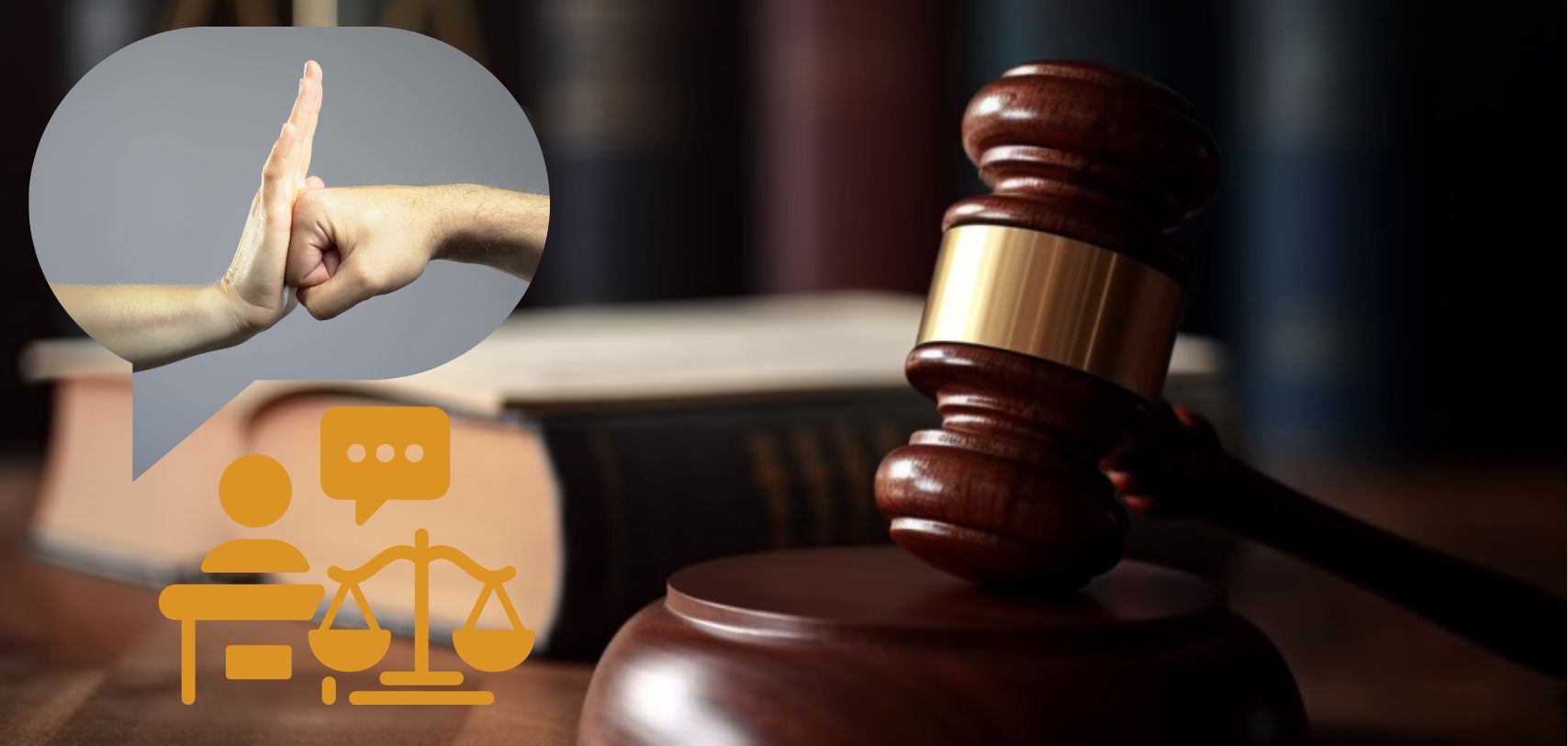Being charged with a drug offence is a serious matter and is one that should not be taken lightly. The way you handle your matter after you have been charged is crucial and the clock begins ticking as soon as the offence is committed. To ensure you choose the right path, it is important that you seek legal advice at the first opportunity.
For the purposes of the below, the focus is on principles applicable to the NSW region however, largely, criminal law principles are the same in every Australian state and it is the legislation that differs. Each state has its own criminal law legislation and the mandatory sentences and alike may differ between states. The core criminal law principles however, are applicable nationally.
What Area Of Law Does My Matter Fall Under?
If you are accused of or have been charged with a drug offence, then your matter falls under criminal law. Criminal law is comprised of a range of different aspects but all matters which relate to a person acting in a criminal nature resulting in their arrest by police is classified as falling under criminal law.
Basically, if a person acts in such a way which breaks a law and the individual needs to be brought before the court for punishment, they will be dealt with under criminal law principles and legislation. You will find a breakdown within the criminal law legislation of the procedures to follow for pleading both guilty and not guilty.
What, If Any, Legislation Should I Consider?
Criminal offences can be considered by a range of different legislation as the legislation for the crime may be different to the legislation which deals with sentencing. The penalty for the crime may also be found inside more than one different act.
Interpreting legislation is no mean feat and is something which should left to an expert such as a criminal defence lawyer. It is important that legislation is interpreted correctly so that there can be no confusion or mistakes made during the hearing or trial. Seeking legal advice is the only way to ensure you receive the best possible outcome. When dealing with drug cases, there is usually also a separate piece of legislation from the overall criminal code. Your criminal lawyers can assist you with knowing which legislation to consider.
What Type of Lawyer Do I Need To See?
If you have committed a drug offence or have been accused of committing a drug offence, then you need to seek advice from a criminal lawyer who specializes in criminal law so that you can achieve the best possible outcome. A criminal lawyer will help you determine, among other things, whether you should plead guilty or plead not guilty to your charge.
The determining factor in whether you should plead guilty or not guilty is ultimately whether it can be proved beyond a reasonable doubt that you are guilty of the charge. Beyond a reasonable doubt is the consideration a judge or jury is asked to determine whilst deciding your guilt. A criminal lawyer will be equipped to assess the facts of your matter and predict your chances of successfully fighting the charge.
As you progress through the information below you will note that there is reference to defence counsel when discussing how your matter may proceed through court. Your defence counsel is also known as your criminal lawyer however in court proceedings they are referred to differently.
What Information Do I Need To Provide My Lawyers?
It is essential that your provide your criminal lawyers with all paperwork you have been given regarding your matter. They will require a copy of your summons or charge sheet as well as all particulars of the offence. Your lawyer will be unable to act effectively on your behalf without knowing the circumstances surrounding the matter.
Importantly, your lawyer needs to know if you have any previous offences for either similar offences or other non-related offences. This will assist your lawyer with building a criminal defence for you. Your lawyer needs to know all the circumstances of the offence, inclusive of any contributing factors such as personal or family circumstances, trauma, etc.
At What Point Do I Enter A Plea?
You can enter a plea at any time however you will be looked upon favorably by the court if you plead guilty early on in the proceedings. This is because it takes considerable time and resources each time your matter is brought before the court and the shorter time your matter is resolved, the better.
If a person is intending on pleading guilty to a criminal law offence then they can do so on the first occasion the matter is before the court. It is common however, for the matter to be adjourned on this occasion so that the person can seek legal advice. The person can enter a plea at any further court date and is able to seek a maximum of three adjournments before they are required to enter a plea.
Once the plea has been entered, the matter is either set for hearing or trial or resolved. If a plea of not guilty is entered then the matter will be set a date for resolution however if a plea of guilty is entered then the matter is resolved and the sentence given.
What Is A Criminal Defence?
A criminal defence is a term used when a person defends themselves against a criminal charge. If the person is disputing that they have committed the offence then their legal representative/lawyers will provide evidence that they have not committed the offence. Alternatively, if the person is not disputing that they committed the offence then a criminal defence will need to be provided which explains why they committed the offence and under what circumstances.
The magistrate will consider the evidence provided by both the prosecution and defence along with any evidence provided by the police. Typically, prosecution and police will work together to ensure the person holds a conviction for their crime. A criminal defence will always try to rebut the evidence which is relied on by the prosecutor and seeks to essentially poke holes in their story so that their evidence is not credible.
What Is A Plea In Mitigation?
A plea in mitigation is a process whereby lawyers make arguments in an attempt to convince the court to show their client leniency during sentencing. This is a chance for the accused person to put forward their personal circumstances, i.e. mental health, family arguments, work stress, etc, that may explain why the person committed the crime. The plea in mitigation usually draws upon emotion and compassion from the magistrate, or in the case of a trial in the Supreme court, the jury.
This process is often difficult as it attempts to rationalize why their client has acted in a criminal manner due to their personal circumstances which does not usually garner great sympathy. A criminal lawyer is the best person available to prepare this type of argument as they will know whether the magistrate will be receptive or not to hearing the argument. They will also have experience dealing with different client circumstances so they will have a range of arguments. Depending on how the hearing or trial goes, this can do more harm than good and may not lead to a great outcome.

Case Study
Heidi has been charged with possession of illicit substances, specifically amphetamines. At the hearing, the prosecution presented evidence which suggests that Heidi was found with 2 kg of amphetamines found inside her home. The sentence for possession of this weight is usually a term of imprisonment and given this is Heidi's third charge of possession, there is a strong chance she will receive a harsh sentence. Heidi holds two previous convictions.
Heidi plead guilty to the offence on the first occasion and fast tracked the matter to a hearing. Heidi's criminal lawyer advises her that they need to formulate a plea in mitigation so that the magistrate shows her leniency.
Heidi instructs her lawyer to complete a plea in mitigation for after the hearing. Heidi's lawyer advises the court that she has three children under the age of 5 in her care and that there is no one else available to care for them. If Heidi were to receive a term of imprisonment as her sentence, her children would need to go into foster care. Heidi would also lose her job as a hotel receptionist which would mean she could not repay her home loan.
Heidi's lawyer advises that her client made a mistake as a result of an argument with her ex boyfriend and that she has no family support. There is a gap of almost 8 years between Heidi's most recent offence and the two prior convictions. The magistrate finds Heidi guilty however suspends her sentence and puts her under strict community corrections orders.Case Study
Lana has been charged with possession of methamphetamine's and is seeking legal advice on whether she should plead guilty or not guilty to the charge. Lana was driving home late one night when she was pulled over for having a broken tail light. The officer asked Lana for her licence and registration but noticed that she was very hesitant to provide him with any personal details.
The officer searched Lana's name and discovered that there was an outstanding warrant for Lana's arrest because she had not attended court on a summons the week prior. Lana was arrested and a routine inspection of her car was undertaken. The officer found 2 kg of methamphetamine's in the boot underneath the spare wheel. A blood test undertaken after her arrest revealed that she had methamphetamine's in her system.
Lana maintains that the drugs were not hers and that she had let a friend use her car. Lana refuses to provide the friends name or contact information. The evidence against Lana is substantial and Lana is advised to plead guilty to the charge.If I Am Charged By Police Does That Mean I Am Prosecuted By Police?
The short answer to this question is no. When you are arrested for a crime, this process is executed by police however they are not the legal officers who then prosecute your matter. The police gather evidence for the prosecution in an aim to convict you of your crime but the physical task of trying to prove you are guilty is that of the prosecutor.
Police must ensure that the evidence they provide to the prosecutor will likely result in the outcome they are seeking and that the evidence was obtained legally and within their police powers. The reliability of the evidence lies with the police who worked on the matter. The police must ensure it is air tight to effect a good outcome.
What Is The Process Of Pleading Guilty To A Drug Charge?
If your lawyer advises that it is appropriate to enter a guilty plea to a drug charge then the process from there on out is simple. On your next court occasion, perhaps the first, you will enter a guilty plea when asked how you plead. Your plea will then be accepted by the court and you will either be sentenced or a date will be set for your sentencing to occur.
If your matter is being heard in the Magistrates court (also known as the district court or local court), then there is no trial by jury and the matter is determined singularly by a judge. If your matter is being heard in the Supreme Court then it will be determined by way of a jury process.
Are There Any Benefits To Pleading Guilty Early On In My Matter?
If you are guilty or are likely to be decided to be guilty then your best option is to be honest by pleading guilty at the first opportunity. Pleading guilty to your charge demonstrates to the court that you are taking responsibility for your actions and that you do not want to waste the court’s time. If there is a victim to your crime, you will also be looked on favourably for not dragging them through an emotionally draining court process.
Each time your matter is before the court, it uses considerable time an resources which could be redirected to other court matters. Your criminal lawyers will advise you of the ramifications of maintaining a not guilty plea and being ultimately found guilty, as it demonstrates a lack of remorse on your behalf which can affect sentencing.
If you decide to plead guilty to the charge, particularly on the first occasion, it is demonstrative to the court that you are showing a level of remorse for your actions and it can be viewed favourably. In order to achieve the best possible outcome available, you need the court to believe you understand how your actions have affected the wider community as well as those close to you.
Will I Be Required To Give Evidence?
It is a personal decision whether to give evidence or not at your hearing or trial and this decision should always be made in conjunction with your lawyer’s advice. It can be detrimental to your case to give evidence in some circumstances because when you are under oath you are required to provide truthful answers to any questions. Your lawyer will advise whether this is likely to result in the best possible outcome for you.
Case Study
Caleb's lawyer has been able to obtain video footage that shows Caleb in an alleyway behind a shopping center in Sydney where he is seen exchanging a small package for an envelope. The police believe the envelope contains cash. The legal advice Caleb has received is that he should plead guilty to the offence however this is not what he wants to hear.
Caleb decides to represent himself for the hearing and decides to plead not guilty to the offence. He is ultimately found guilty of the offence in the local court. Caleb's sentence is a wholly suspended sentence as well as a monetary fine of two penalty units.
What Is The Process Of Pleading Not Guilty To A Drug Charge?
If you are planning on pleading not guilty to a drug charge then the process is longer. On the first occasion, you will be asked to enter a plea and at this time you will advise the court that you wish to plead not guilty to your criminal offence. Your matter will then be given a date for hearing or trial depending on whether it is being heard in the Magistrates court (also known as the district court or local court)or Supreme court.
A trial or hearing is the process of determining guilt through a weighing and testing of available evidence. Your lawyer will bring evidence before the court in favor of your innocence. The prosecution alternatively will try to prove beyond reasonable doubt that you should be found guilty of the charge.
What Happens If I Am Found Guilty Of The Offence?
If you are found guilty of a criminal offence or charge then you will be subject to both a conviction and a penalty. The sentence you receive is designed to deter others from committing the same or similar offences. It also needs to be a sentence that ensures safety for the community. Criminal lawyers are specialized in knowing what arguments to make regarding your plea in mitigation so the Magistrate is convinced to give you a lesser sentence.
The magistrate will consider a range of factors including at what point in time you chose to plead guilty or not guilty throughout the process. If you chose to plead guilty early in the process then your remorse will be taken into account. If you chose to plead not guilty before either being found guilty or changing your plea to a plea of guilty, you are considered to have mislead the court and this may be considered when determining your sentence.
If I Choose To Have A Trial By Jury, How Long Will It Take For Them To Decide The Outcome?
If you are subject to a trial by jury, it is unknown how long it will take them to decide your fate. When the trial ends and the jury proceed to the jury room for deliberation, they need to form a unanimous opinion for you to be considered either guilty or not guilty of the charge. If even one person decides against the majority, then it will be ruled a mistrial and the trial will need to be heard again with a new jury.
When deciding whether you are guilty or not guilty, jurors have to consider whether the prosecution have proved beyond a reasonable doubt that you have committed the crime. This is a high threshold. The jury are aware that if they decide a guilty verdict that the individual will record a conviction and be subject to a penalty, yet on the other hand if they decide a not guilty verdict, they must be absolutely sure that the person is innocent and is not a danger to society. The situation is serious and it is no easy decision.
During the deliberation process, jurors are not allowed to have contact with anyone outside the group so that their decision is not influenced.
What Happens If I Am Found Not Guilty Of The Offence?
If you are found not guilty of a charge then the matter is resolved and there will be no legal recourse. You will have been acquitted of your criminal charge. If you are acquitted you will not receive a penalty and you will not record a conviction.

Case Study
Sasha has been charged with possession of Ice. Sasha was leaving a party after it was broken up by police when a 1 kg bag of Ice fell out of her jacket pocket as she was putting it on. Sasha was immediately arrested and charged with possession.
Sasha wants to plead not guilty to the charge because she does not take drugs and she is unsure how the drugs were put into her coat. Sasha's lawyer also advises that she should plead not guilty given the circumstances. Sasha's lawyer also advises that they need to try and find witnesses from the party who are able to provide proof that someone else put the drugs in her coat. Some friends of Sasha's have told her that they saw a blonde girl hanging around the coat area.
Sasha approaches her friends and asks if any of them will be witnesses for her case. She is concerned that if she is found guilty then she is at risk of a term of imprisonment. Sasha's friend agree to be witnesses for her and her lawyer is confident that they can fight the charge. Sasha is found not guilty to a criminal charge following the hearing. and does not record a conviction.
Case Study
Will I Still Be Required To Attend Court While Subject To Bail?
Depending on the circumstances, you may still be required to attend court while on bail. If you are subject to bail conditions while your trial is progressing then there will be further court dates for you to attend. If you ever need to change a bail condition by making a new bail application, then you will need to attend court for this process to occur as well.
It is important that you do not fail to appear to any of your court dates while you are on bail as this can result in a warrant being sought for your arrest. If bail is granted, the court is taking gamble on you and places significant trust in you to do the right thing. If this trust is broken then the penalties can be harsher.
Each time you appear in court, you will be advised of your next court date as well as whether your bail conditions are still running in the same terms or if they have been modified or changed. Each time your bail conditions are considered, you will receive a document detailing what they are so that there can be no confusion. This document will be provided to you directly by the court.
What Happens If I Am Refused Bail?
If you are refused bail then you will be required to serve a term of imprisonment. Bail applications are only made when an individual has already been imprisoned or has been sentenced to a term of imprisonment.
If you are refused bail then you have the option of appealing your decision however this process can take months. You will be able to re-apply for bail should your circumstances change however our application will not be considered if you apply again under the same circumstances. A substantial change is required.
Case Study
Mandy advises that she has no employment currently and that she has already had her license suspended for driving under the influence. Mandy has no children and is not close with her parents. Mandy is not involved in any volunteering or social groups and she does not contribute anything to the greater society through any charity work.
Mandy has been assessed as being at a high risk for reoffending because she has relapsed several times in the past. On the last two occasions, she has been sentenced to the court-mandated drug program and she has attempted rehab on 4 occasions. Mandy has relapsed each time.
Mandy is not likely to be granted bail as being granted bail may cause her to re-offend.
What Happens If I Am Released on Bail?
If you are fortunate enough to be released on bail then you will be given bail documents which detail all your bail conditions. You will also be required to check in with either a community corrections officer, a specific police station, etc, so that they can check your progress and ensure you are not breaching any of your conditions.
If you are released on bail you gradually gain back your freedom through good behaviour. This means that over time your bail conditions may be reduced or decreased as a result of your compliance and dedication.
If you comply appropriately with your bail conditions, it is possible to receive a reduced sentence for your good behaviour. This is particularly in situations where demonstrating a prolonged period of change provides confidence in your rehabilitation. Ideally, rehabilitation takes place outside the prison system so if you can demonstrate this on your own it will go a long way to satisfying the court that you are remorseful. You may also be more likely to receive a financial penalty and a suspended sentence.
What Type Of Lawyer Do I Need To See?
You will need to contact a criminal lawyer who specialises in criminal law. Criminal law is a specialist field of law which deals with all aspects of the criminal code and bail act. Criminal lawyers in this field are able to guide you through the processes of both the Local Court (Magistrate’s Court or District Court) and the Supreme Court bail application processes and help you understand whether you will be deemed to pose an unacceptable risk to the community.
You need to ensure that you provide your lawyer with all necessary information so that they can guide you through the bail process. This information will include all documents or notices you have received requiring you to appear in court as well as all summons sheets detailing what you have been charged with. Your lawyer will be able to contact the prosecution and police to obtain any further information they require.
It is essential that you advise your lawyer fully of all your current circumstances so that they can work towards showing that bail can be granted because you are an acceptable person within society.
Is There Such A Thing As Police Bail?
Depending on the circumstances you can be released on police bail if you have been charged with an offence. This means that you are released from custody without being brought before the court first. This is usually a process which occurs when you have committed a minor traffic or drug offence and is not the process for more serious offences.
You will be provided paperwork with bail conditions detailed (if there are any bail conditions) and it will be expected that you comply with those conditions until your court date. It is important that you do not leave the court or police station before signing and being provided a copy of this paperwork as you are not considered to be released on bail until that process has been completed.
Being released from custody may require the assistance of a family member or friend as sometimes there are costs associated which need to be paid.
Case Study
Grant is advised by police to seek legal advice before the court date so that he can be fully informed of both the process and the likely outcome. Grant is provided with names and contact information for some criminal lawyers in the area.
Case Study
What Is A Brief Of Evidence?
A brief of evidence is a comprehensive file of all the proof of your case. The brief will contain all documents, CCTV footage, article or DNA evidence, witness statements and accounts as it pertains to your matter. In the case of drug related charged there would also need to be proof of drug test results, whether they be positive or negative, as well as analysis of the drug.
This evidence can be requested by you or your lawyer as part of the discovery process so that you can see on what basis your charge relies on. The brief of evidence will also help your lawyer decide whether you have a credible defence to the charge and whether that defence is likely to result in a great outcome.
All criminal matters require appropriate disclosure to be shared prior to any hearing or trial taking place. If disclosure is not provided then evidence can not be allowed to be presented in many circumstances. Neither the prosecution nor the defence can adequately act in their client’s best interests if they are seeing evidence for the first time during the hearing. The magistrate or judge will ultimately decide whether to allow the evidence and if they do, they usually allow some time for it to be examined by the other party.

Case Study
How Does A Criminal Hearing Or Trial Work?
If you plead not guilty to your charge then the prosecution will try to prove your guilty through a hearing or trial, depending on which court you are in. The trial or hearing will consist of opening statements by the prosecution before they run their case. This will consist of the prosecutor calling whatever witnesses they wish to have provide evidence.
The witnesses will be lead through their evidence and then provided to the defence for cross examination. Following cross examination the prosecutor will have the option of re-examining the witness so they can redirect some lines of questioning. The prosecutions’c case will then conclude and the defence will have their chance.
The defence repeat the same process until all witnesses have been called and all evidence has been presented. Both the prosecutor and the defence will then have the chance to deliver their closing arguments which is designed to be a summary of the evidence and key arguments they have made.
The magistrate and or jury depending on the court, will then decide whether the person is guilty or not guilty of the offence/s. Following this the magistrate or judge will provide sentencing.
What Is The Difference Between A Summary And Indictable Offence?
Under legislation, there are two different types of offences, summary and indictable. Summary matters are dealt with in the lower court which is referred to as either the district court, magistrate’s court or the local court, depending on which state you are in.
Summary offences are less serious crime which can be dealt with procedurally or by way of hearing without a jury. They are decided solely by a magistrate. Summary offences are less likely to result in terms of imprisonment (at least at first) and are more likely to result in financial penalties or some form of community corrections order. In most state’s, the local court will sit everyday and has a running list of cases to deal with.
Indictable offences however, are dealt with by way of the Supreme court and are considerably serious in nature. Matters heard in the Supreme court are subject to a trial by jury which can last several days if not weeks.
If determined guilty in either court, you will record a conviction and receive some form of sentence. In both courts, the case is brought against you by the prosecution and there will be a prosecutor and a defence lawyer on either side of the table, provided the accused does not choose to represent themselves. In the local court this may be an option due to the nature of the crime however in the Supreme court, the accused is heavily advised to seek legal advice and have legal representation.
A magistrate has the ability to refer matters from the local court to the Supreme court if new information comes to light which takes the matter outside their legislative powers. This may be because new charges have been added or information is made available which suggest the crime is more serious than first understood.
No matter which court your matter is heard in, the final determination of the matter under a plea of not guilty can be extensive and it will likely be several months if not years until your matter is resolved. Larger states such as NSW have a backlog of cases to get through.

Case Study
Isaac's charges are both summary and indictable in nature, namely a charge for low range drug driving and a charge for possession and distribution of marijuana. Isaac needs to decide to plead guilty or not guilty to the charge however he is unsure how much evidence the police and prosecution have against him.
Isaac's lawyer advises that pleading guilty to the driving charge may be Isaac's better option as it is a lesser charge and there is no doubt that he is guilty of this charge given that he was pulled over and tested and returned a positive result.
However, Isaac's lawyers are advising that he plead not guilty to the indictable charge given that Isaac is maintaining his innocence. Isaac claims that the individually wrapped packages found behind the back seat do not belong to him and that the car he was driving is registered in his friend's name. If Isaac were to plead guilty to the charge and record a conviction, he would like receive a term of imprisonment.
Isaac's matter in the lower court is dealt with easily by the magistrate and Isaac's license is suspended for a period of 18 months. Isaac is also required to pay a fine. The penalty does not require a term of imprisonment.
Isaac follows his lawyers advice and pleads not guilty to the indictable charges. His lawyers are confident that the prosecutor will struggle to prove that the drugs found within the car belong to Isaac or that he even had any knowledge that the drugs were there. Isaac was found to have amphetamines in his system, not marijuana, which creates doubt. Isaac's matter has been adjourned to a trial date in several months.

 (02) 8806 0866
(02) 8806 0866 





